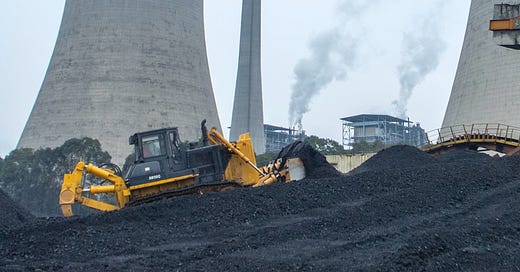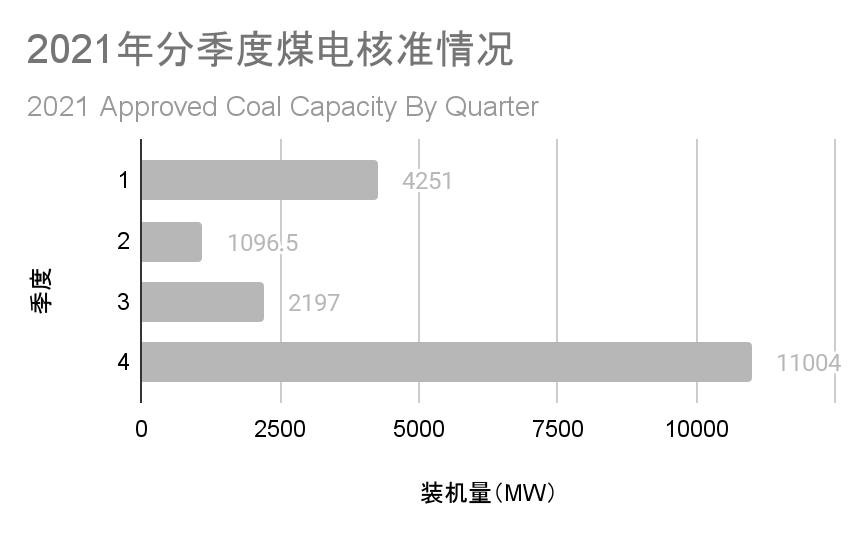Analysis: China's Climate Cutoff Over Pelosi's Taiwan Visit is Convenient Given its Coal Surge
China's declaration that it's halting climate dialogue with the United States over House Speaker Nancy Pelosi's Taiwan visit (along with a heap of other measures) sure seems like an artful dodge to avoid having to talk about its surge in approvals of new coal-burning power plants.*
From Xinhua, the official government "news" agency:
In disregard of China's strong opposition and serious representations, Speaker of the U.S. House of Representatives Nancy Pelosi visited China's Taiwan region. Chinese Foreign Ministry on Friday announced the following countermeasures in response:
1. Canceling China-U.S. Theater Commanders Talk.
2. Canceling China-U.S. Defense Policy Coordination Talks (DPCT).
3. Canceling China-U.S. Military Maritime Consultative Agreement (MMCA) meetings.
4. Suspending China-U.S. cooperation on the repatriation of illegal immigrants.
5. Suspending China-U.S. cooperation on legal assistance in criminal matters.
6. Suspending China-U.S. cooperation against transnational crimes.
7. Suspending China-U.S. counternarcotics cooperation.
8. Suspending China-U.S. talks on climate change.
From the Associated Press:
"China declared Friday it was stopping all dialogue with the United States on major issues over House Speaker Nancy Pelosi’s Taiwan visit, including crucial climate cooperation between the two nations that led to the landmark 2015 Paris climate accord."
The back story
If the climate crisis is any indication, it wouldn't be hard to interpret this as a laundry list of inconvenient issues that President Xi Jinping would love to push to a far back burner.
All the world's countries are busily trying to assemble their talking points ahead of the fall climate season - with carbon action a core theme at events surrounding the United Nations General Assembly in New York City in September and then, of course, the climate treaty talks, a k a COP-27, coming in Sharm el-Sheikh, Egypt, in early November.
It looks like the United States is on track to present the $369 billion in climate and clean-energy initiatives in the Inflation Reduction Act of 2022 as a signature achievement - should Senate votes starting Saturday go smoothly, as the latest news reports appear to indicate. (Read my piece on West Virginia's coal-invested Senator Joe Manchin, climate champion.)
China's inconvenient coal surge
China had positioned itself as a leader ahead of last year's COP-26 round of talks in Glasgow, with Xi Jinping announcing at the General Assembly last September that the giant nation would, as the World Resources Institute summarized, "stop building new coal-fired power plants abroad, and would instead support low- and middle-income countries in developing green and low-carbon energy."
But a domestic electricity crunch resulting in disruptive blackouts has resulted in a surge of approvals of new coal-burning power plants, according to a Greenpeace report released just two weeks ago:
Provincial governments across China approved plans to add a total 8.63 gigawatts (GW) of new coal power plants in the first quarter of 2022 alone, already 46.55% the capacity approved throughout 2021, new research from Greenpeace East Asia’s Beijing office shows.
What's been lost
It's vital to have sustained dialogue among governments of the biggest economies, and polluters, on the planet. So it's discouraging to see the Taiwan dispute disrupt discussions like those between John Kerry, President Joe Biden's top climate envoy, and China's chief climate negotiator, Xie Zhenhua, in May at the World Economic Forum.
The May meet-up built on the U.S. - China Joint Glasgow Declaration announced at COP-26, which established a working group to explore cooperative steps the countries could take related to greenhouse gas measurements, methane reduction and more.
Over all, I don't see China's move now as much more than posturing.
The country is already a renewables and electric-vehicle giant, and sustaining its development of nuclear power. China's dependence on coal, which I first wrote about in 1988, is hard to break but will likely ebb in the long haul.
Energy equity is part of climate justice
The biggest issue at COP-27 will not be what China or the United States do with their own emissions. It will be what the United States and other rich countries, responsible for the brunt of warming so far, do to foster the vast expansion of energy access required in countries still far behind China in their economic and societal development.
The Sustain What webcast I hosted on Thursday lays out those issues and options: "Why Climate Justice Must Include Energy Justice – from COP-27 to the Next Heat Wave."
My guests were Sophie Mbugua, an environmental journalist in Nairobi who founded the great Africa Climate Conversations podcast series and Africa Climate News website; Destenie Nock, a Carnegie Mellon University researcher doing groundbreaking work revealing how poor households dangerously cut back on energy use facing dangerous heat; Vijaya Ramachandran, the director for energy and development at the Breakthrough Institute, who recently warned against blanket bans on fossil fuel finance in a Nature column; and Johan Rockström, director of the Potsdam Institute for Climate Impact Research, who has been warning wealthy countries they must cut heat-trapping missions more so the poorest billions on the planet can fully develop – a process requiring more emissions.
UPDATES
Geopolitics maven Ian Bremmer has weighed in with these core conclusions:
The U.S. and China are not on the verge of war. Both governments recognize that in today’s globalized world, there is no Berlin Wall to protect one side’s security and prosperity from the other’s potential turmoil. Both live with the threat of mutually assured economic destruction.
But Pelosi’s provocative trip allows China’s military to rehearse for a future war, pushes China’s leaders to save face by drawing new Taiwan redlines, and raises new doubts about the long-term stability of Taiwan’s economy.
Keep Track
Global Energy Monitor is a solid portal for tracking coal mining and power plant activity worldwide. A May report focused on the methane implications of China's continuing coal mine expansion.
Have the interactive coal map:
Send me feedback (including corrections!), tips, ideas here.
Find my social media accounts, books and music in a click here. And please share Sustain What with solution-focused friends and colleagues.
Correction
* Ouch. In haste, and with the Senate votes on the Inflation Reduction Act on my mind, I initially wrote Senator Nancy Pelosi above. Sorry!
Parting shot
Here's the full image from the banner at the top of the post.









